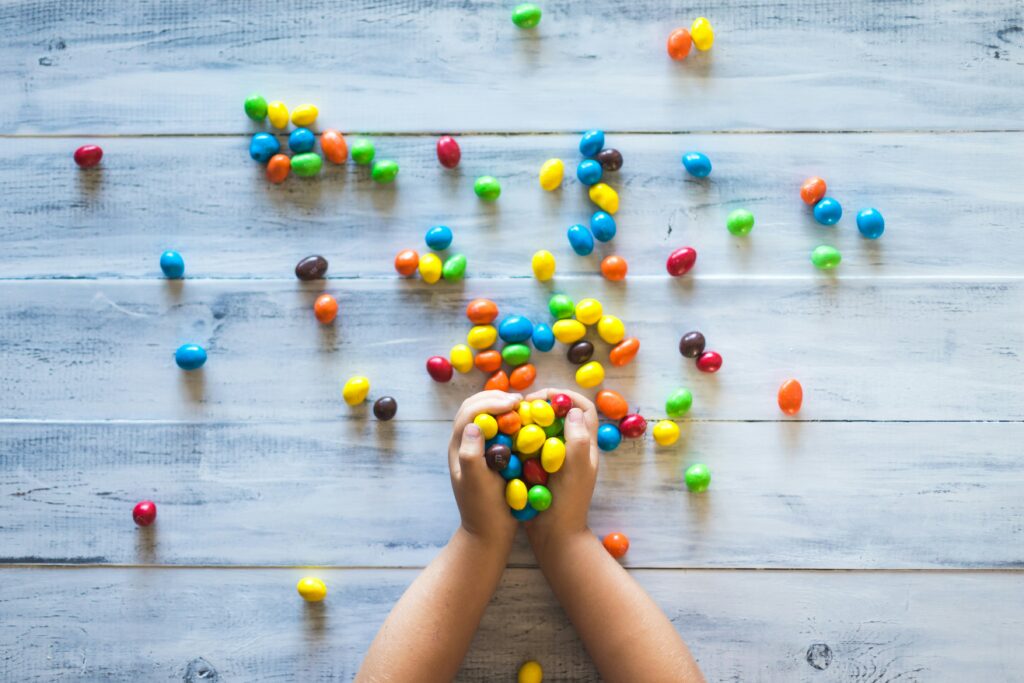Stonecoast Review
The Literary Journal of the Stonecoast MFA
Reaction Time

By Suzanne Farrell Smith
His cheeks flush. Folding over the plate—a make-your-own, bearing his hand-drawn city skyline—he spits something out. I set down my water glass and peer at the top of his head, a crop, I want to say mustard gold, I want to say flaxen, I want to tousle it the way I do more and more now that he measures just seven inches shy of my height.
one mississippi
On that skyline, markered when he turned five and declared himself an architect, sit hunks of yellow and beige, a wedge of green. Macaroni bits. A corner of King’s Hawaiian. How did it fit? My husband was just telling our boys about ancient Greece, their latest historical curiosity, while I considered myths—which to teach first, which are too scary. I didn’t notice all that food go into his mouth, all at once.
two mississippi
Is the mac and cheese too hot for his tongue? Has it seared his soft palette? But by the time our family of five sits to eat, the mac and cheese is lukewarm. What about the cucumber, the chickpeas fresh out of the fridge? Why the King’s Hawaiian, ripped from a room-temperature dozen?
three mississippi
Perhaps the culprit lurks in the plate. Melamine mingling with dinner, an off taste. But these plates have never been microwaved. FDA guidelines.
He’s silent. I zero in. Mustard gold.
four mississippi
I haven’t served a pretzel, popcorn, or potato chip tonight. No hot dog or grape, which, until recently, I chopped into tiny pieces. No raw vegetables—at nine, he doesn’t like them as much as he enjoys roasted asparagus and sauteed green beans. He’s never tried a cherry.
I scan the debris field under his chin, as if a pit from an invisible stone fruit will appear.
five mississippi
He stands up, hands flying to throat, but remains mute. Is anyone talking? Am I?
six mississippi
My husband pushes back hard, the wicker chair scraping the oak floor, and springs to our son, who stares at me. He doesn’t seem to notice his father or brothers. He looks only for me.
I stare back, searching for something in his face—the wide blue eyes, the pink-splashed cheeks—that will tell me what is happening.
seven mississippi
Thump, thump, thump. My husband bangs our son’s upper back. I glance under his plate at the mat I made for him when he was three, had his first-ever school photo laminated inside a rectangle alphabet. I notice a creep of black mildew and make a note.
eight mississippi
Thwack. His big brother twists in his seat, his identical twin flies from the room.
nine mississippi
I do not remember that we have a device for mealtime crises, a vacuum designed to seal a child’s nose and mouth and suck out peanut butter or marshmallows. I do not remember that I bought it three years ago after seeing an ad on Facebook. I do not remember that I stored the device in the white cabinet just behind my chair so that, during any ordinary dinner of Kraft macaroni and cheese, King’s Hawaiian, cucumber rounds, and chickpeas, should a morsel get lodged in one of my boys’ throats, I would be ready. Back then, I congratulated myself. Buying this miracle gadget, storing it at arm’s reach, leveled me up to EMT.
But I don’t remember it. Instead, I’m narrow. Fogged.
ten mississippi
Finally, a sound. He rasps, “Help.”
eleven mississippi
Realization is a sudden floodlight, piercing and crisp.
twelve mississippi
I shoot up, horseshoe around the table, zip my forefinger to my middle finger, dive into his mouth, and swipe the back of his throat, right to left, without recalling why I know how to do that, how to swipe. Days from now, I will read that the maneuver is outdated, even risky.
My fingers evacuate the last chickpeas.
thirteen mississippi
We are more likely to choke to death than to die by accidental gunfire or in a plane crash. Among preschool-aged children, choking is the fourth leading cause of unintentional death. Many deaths occur because others don’t realize the victim is choking. Like drowning, choking might look like something else. A fit of coughs. Or laughter.
Those who don’t die often end up requiring emergency care due to extreme oxygen deprivation. Many suffer permanent brain damage.
Some say brain damage can occur in as little as thirty seconds.
fourteen mississippi
He croaks out another word: “Ouch.” Then he starts to cry. I gather him as he heaves gruff, lung-fired sobs.
fifteen mississippi
Next meal, I will steam rice to mush. I will relentlessly debone chicken, dice mushrooms to smithereens, yield to the wave of ways my children might die. My dreams fill with the least likely: lightning; rabies; we’re on an open-air train in the desert and my boy tumbles off, starts running to keep up, and I’m stupefied, helpless, as my son, screaming for me, falls farther and farther behind.
I will make more soup.
SUZANNE FARRELL SMITH is the author of three books: Small Off Things: Meditations from an Anxious Mind, an essay collection; The Memory Sessions, a memoir about searching for lost childhood memory; and The Writing Shop, a teaching guidebook. She is widely published, has been Notable in Best American, and won a Pushcart for her essay “If You Find a Mouse on a Glue Trap,” published in Brevity. Suzanne teaches at Westport Writers’ Workshop. She lives in a creek-cut valley in Connecticut with her husband and three sons.
This story originally appeared in Stonecoast Review Issue 22.
Photo by Patrick Fore
